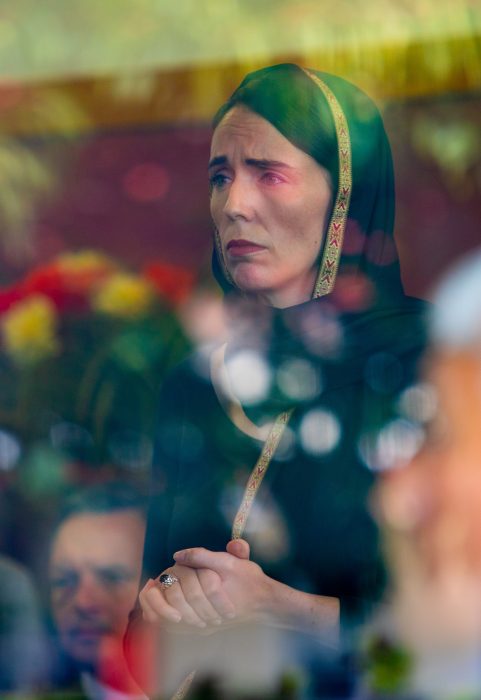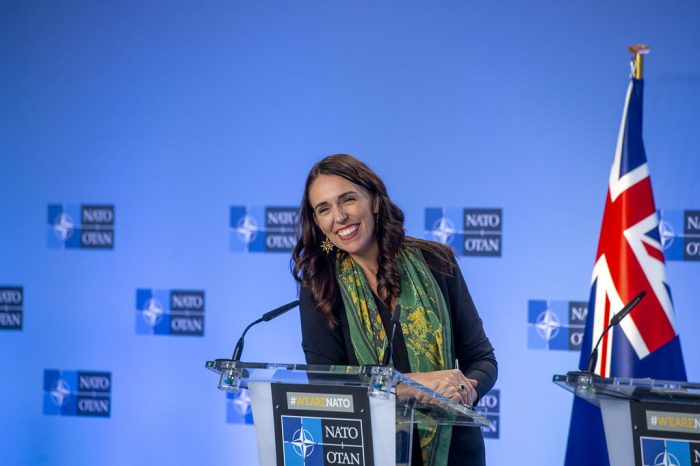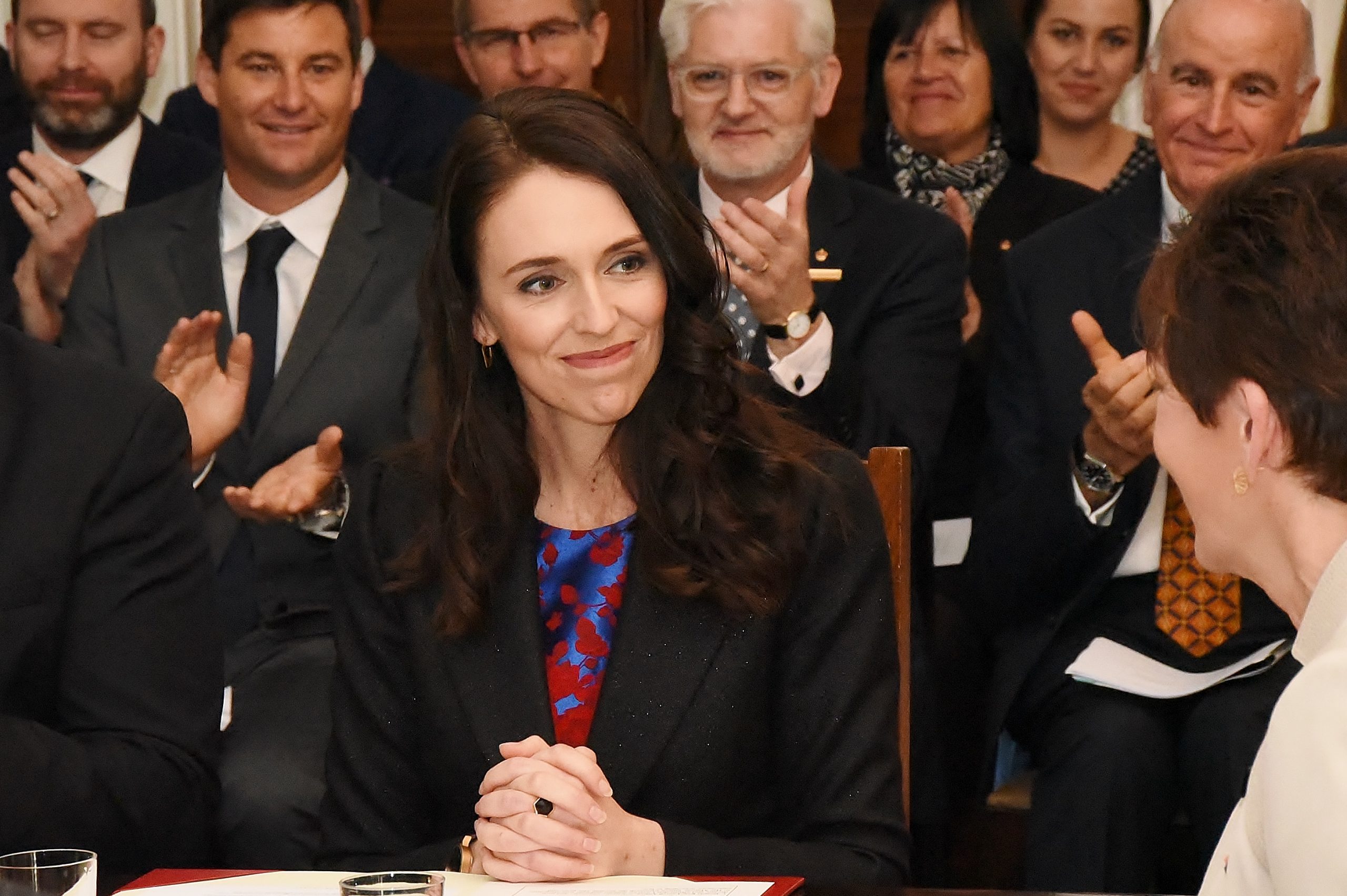2022 seemed to be the year of resignations in the UK. Boris Johnson forced out by partygate, the chaotic and short tenure of Liz Truss pushing her step down before mutiny could even begin. And now, barely 20 days into 2023, New Zealand has added another resignation to the list.
On January 20th, 2023 Jacinda Ardern resigned her post as Prime Minister of New Zealand, sparking a leadership contest for her Labour party before the upcoming general election later this year.
Returning from summer break, Jacinda was expected to announce the election date and officially open the next year of political activity. Instead she instigated a new national moment, resigning on her own terms in an eloquent and heartfelt speech. Her resignation was particularly self reflective, claiming no conspiracy but rather a desire to spend time with her family.
“The decision is my own. Leading a country is the most privileged job anyone could ever have, but also the most challenging. You cannot and should not do the job unless you have a full tank, plus a bit in reserve for those unplanned and unexpected challenges.”
“I no longer have enough in the tank to do the job justice.”
Such a sacrificial resignation wraps up Jacinda’s own form of unique leadership quite gracefully, ensuring a legacy focused on her personhood rather than her policies. Because it is, in fact, Jacinda’s starring role as a progressive and feminist leader that will be remembered long after she steps down.
Jacinda Ardern joined parliament in 2008 as a list MP, becoming member for Mount Albert in 2017. She took the role of Labour party leader a mere 7 weeks before the 2017 election, after the last minute resignation of Andrew Little, and snatched election victory against all odds by forming a coalition with the Greens and New Zealand First parties. Three years later Jacinda-mania hit again as she claimed an unprecedented 2020 election landslide, establishing the first majority government in 24 years.
Initially gaining attention for her role as a DJ in a “past life”, Ardern quickly carved a new and momentous path. Only the third female Prime Minister in New Zealand history, her appointment at 37 made her the world’s youngest serving leader and, with the birth of daughter Neve Te Aroha only eight months into her tenure, she became the second world leader to give birth in office.
Globally recognised as feminist advocate and role model, Ardern fought for women daily just by exemplifying the worth and ability of working mums and female leaders everywhere. Her partner Clarke showed a father’s ability to act as primary caregiver, and daughter Neve broke barriers as the first baby to attend the UN general assembly.

Amazingly, Jacinda’s legacy extends further still. Tackling a list of difficult problems for the island nation, Ardern carved her name into history and placed New Zealand firmly back on the map. The world watched on as Ardern tackled terrorism, natural disasters and the COVID-19 pandemic, at every moment showing a level of dignity and class that prioritised New Zealand’s national interests and fought for international ones too.
After a gunman shot and killed 51 people in two Christchurch mosques, Ardern rose as a voice in the fight against terrorism, racism and gun reform. Instituting immediate additional bans on firearms, she refused to give the gunman any fame by saying his name, instead focusing her efforts on showing empathy and respect to the NZ muslim community that was deeply hurting. “They are us,” she wrote at the time.
As images of her visiting the mosques in a hijab raced around the globe, Jacinda became a symbol of unbiased human compassion, before she headed to America to add a voice of reason and examples of reform to the gun control debate there.
After The Whakaari volcanic eruption killed 21 people, she again leaned into compassion and empathy, working to shed light on the disproportionate effect the disaster had on indigenous communities of Maori and Pacific Islanders.
And when the CoVid-19 Pandemic closed down the world Ardern exemplified the power of national teamwork with a swift and decisive strategy keeping the small nation Covid free for over two years.
Of course thoughout all of these powerful moments, Jacinda faced equally worthy criticisms domestically, with her government struggling against the housing crisis, cost of living, social inequity, issues of unconstitutionality in her Covid policy, climate emissions and anti-vaxers. But at every challenge Jacinda rose with dignity and respect, decisively empowered to fight for her country and represent them with strong leadership and a warmth of understanding. No one can doubt the vast reforms she brought for child poverty and the national identity of the nation. And she certainly found ways to hold her own against sexist critics time and time again, both domestic and abroad.

Ardern’s leadership style redefined empathy as a strength, and she was always more concerned with fighting global notions of injustice and sexism than with her own colleagues. She reinvented the role of politician and world leader, more than willing to get down and dirty in the issues facing the nation and the world.
Her humour was much beloved, as was her ease at communicating with the public. Throwing equal effort behind UN speeches, national press conferences and Instagram lives alike, Ardern never shied away from a chance to show why New Zealand mattered to her, and why it should matter to the globe.
For Jacinda, kindness, equality and love reigned supreme, values she displayed in equal levels whether she was speaking to a packed United Nations or a school group in Christchurch. Through every moment Jacinda Ardern redefined leadership, and in doing so showed first hand how a small nation with the right leader can create global waves of change.
Now, even at the end, her resignation adds one final chapter to her textbook of leadership reform. Stepping down before her term is up not because she must, but because it’s the best path for her party, her country and herself. Such an open and transparent relinquishing of power is uncommon amongst political leaders, but for Jacinda it’s simply the last step towards good will and a protection of what is right.
Stepping down gives the country time to prepare, it allows Labour to promote someone who genuinely wishes to fight the nasty electoral battles of the next year, and it allows Jacinda to prioritise what matters most to her. For Jacinda it was her family who had “sacrificed the most out of all of us.” And as such, this act of resignation, this act of self-preservation, acts more like a personal step forward, rather than a political step back.
“I am human. Politicians are human. We give all that we can, for as long as we can, and then it’s time. And for me, it’s time.”
A bold, brave and compassionate move, Jacinda reminds us once more of the thoughtfulness of her actions and decisiveness of her heart. She stands up one last time for the struggles of motherhood and the need to prioritise the self. As burnout hits, Jacinda Ardern chooses not to push through but instead to step back, showing herself the kindness, empathy and humanity she has for so long shown to others.
Adern claims her next steps involve family – being there when Neve starts school, finally getting married to partner Clarke- but with a legacy this strong, her role in global politics and the pursuit of fair and equal leadership certainly doesn’t feel over. Rather, her tenure as Prime Minister may be just the beginning.
Regardless of her forthcoming paths, it seems clear that Jacinda’s commitment to the leadership style she created and the values she fought for is unending, concluding her resignation with a simple and long-held belief for her nation, and the world;
“I hope I leave New Zealanders with a belief that you can be kind, but strong. Empathetic but decisive. Optimistic but focused. That you can be your own kind of leader – one that knows when it’s time to go.
Kia Ora Jacinda. And thank you.
